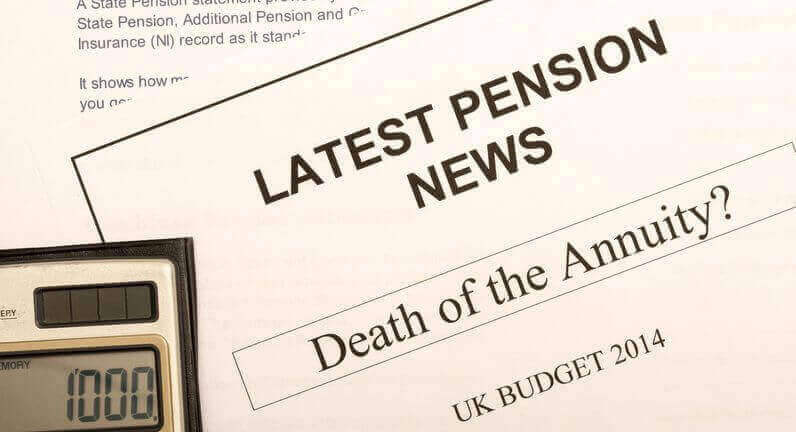Blog
Pension liberation – how will it affect you?
What are the Pension Liberation changes?
Pension liberation is long overdue. With the average UK pension valued at £72,134 – do people really feel as if they have any control over their retirement or how much they have coming to them? The answer has always been a firm “no!” People view their pensions as Monopoly money with a complete disconnect between the monetary value of their pension and how much they actually get when they retire.
For example – let’s take the average pension pot of £72,134. Under the old rules you would have to take out an annuity, which works like a payment plan from the pension provider to the pensioner. This annuity would only provide a monthly income of £240/month which for most doesn’t generally allow people to rely on their pension income alone. When the market experiences a significant fall in confidence similar to Oct 2014 whereby people lost up to 10% of their pension value – the consequence in real pension terms would have been a loss of £24 per month in annuity income. Being a UK citizen I think people have been more concerned with the weather!
Given that a large percentage of the UK population lives within “pension poverty” the government is encouraging people to live off their pension as opposed to taking more money off a government who has the highest levels of debt in the world.
So from April 2015 – instead of pensioners receiving an annuity, pension liberation will enable them to take 100% of their pension pot as cash.
What do these changes mean for you?
This belated pension liberation allows pensioners to take control of their own pension and as such pensioners now serve as custodians of their own wealth as opposed to relying on the nanny state for pocket money. With every story there’s another side – and in this case there is a risk that people may abuse these new rules and squander their pension, leaving them reliant on the government to help them subsist. I would argue that these potential blunders shouldn’t take away the right to manage one’s own retirement. In any case, as individuals don’t we care more about our own retirement than a partisan government that can only last for 8 years?
These new changes mean that people will have more to gain but also a lot more to lose. People have more to stake with their pension and the implications are that the general public should take far more of an active role in managing their pension.
If we remember – under the old rules the 10% drop in equities during October 2014 saw people lose £24 per month. Now under the new pension liberation rules people would have lost £7,213 in a day which serves a much harsher blow. The new rules invoke a bitter sweet effect; on the one hand people are delighted that they can now receive 100% of something they’ve been saving up for. On the other hand the old rules didn’t encourage people to protect or manage their pensions as the implications weren’t severe/motivating enough. This leaves people looking at past performance with regret and future threats to their pension with worry and fear…
What are the threats?
– Terror threats have negatively influenced the value of pensions by up to 10%
– Greece’s new elected Syriza party potentially results in alleviating its debt responsibilities thereby exposing the UK and the rest of Europe to more unpaid debt and therefore weaker currency
– Greece leaving the Euro as a result of their latest election may encourage other member states to follow suit and thereby leave the Euro with even more debt for even less member states. The risk here is a possible Euro crash which has significant implications for every market in the world
– The falling oil price has dragged down the value of equities significantly. The consequence is political instability in Russia and a crimping of their investment in UK property and corporations
– A general election resulting in a hung parliament could result in a weak coalition government giving business leaders a weak economic appetite
– All of these threats remove confidence from the market which discourages people to invest in paper assets thereby affecting liquidity and values. If several of these threats combine and escalate, it lays a rocky path for investments in 2015.


How can gold help protect your pension?
It’s a well-known fact that in times of economic, political or fiscal uncertainty physical gold tends to increase in value. This ongoing trend has witnessed a 20% increase in the gold price over the last 3 months as the markets’ appetite for portfolio insurance has developed with the growing list of pressures that threaten it.
The relevance of using gold to protect one’s portfolio and the impending threat of people’s pensions influences people to invest and thereby protect their pension or self-invested personal pensions (SIPP) with physical gold bars. By owning gold bars within your SIPP you are able to remove exposure from many of the threats and risks that eat away at your pension. With a SIPP one can continue to have exposure to riskier assets whilst hedging themselves with gold.
In order to get the full benefit of the new rules people are now more inclined to take an active role in ensuring that they can get 100% of a well-protected pension as opposed to a 100% of a pension that’s lost 50% of its value.



